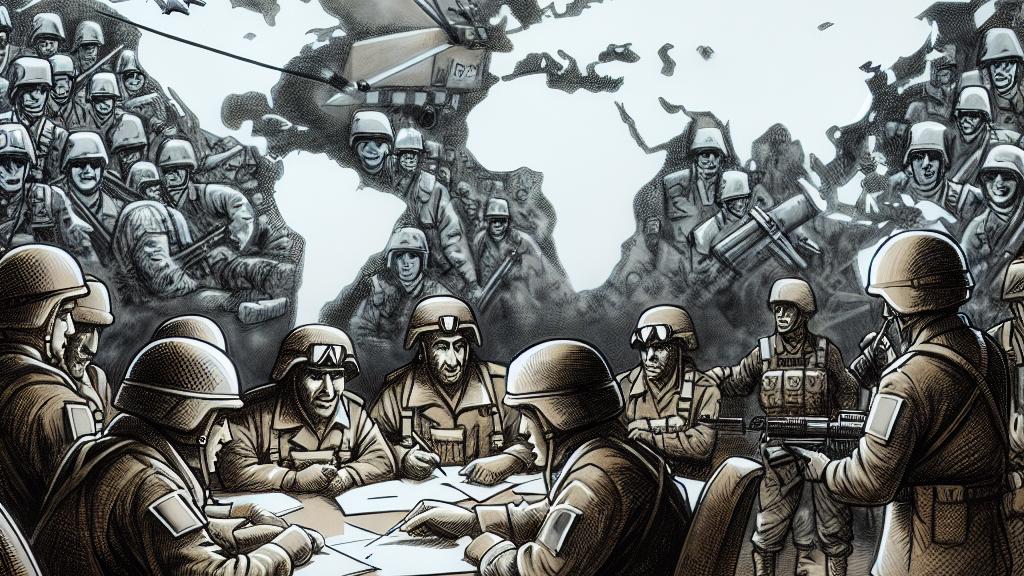North Korea's Military Support to Russia: A Strategic Move
Overview
- North Korea appears ready to deploy up to 100,000 troops to bolster Russia's military campaign.
- This potential alliance signifies a calculated move amid rising tensions surrounding the Ukraine conflict.
- Widespread global reactions reveal deep concerns about the future of international security and stability.

A Surge in Military Collaboration
The startling news of North Korea potentially sending 100,000 troops to Russia puts a significant spotlight on the evolving dynamics of international alliances. Kim Jong-un's call for stronger military readiness highlights a pivot towards aggression, where North Korea seeks to enhance not just defense capabilities, but also geopolitical influence. This isn’t just a whimsical decision; it stems from a carefully construed strategy aimed at solidifying military ties with Russia amid ongoing hostilities. For context, during a recent speech, Kim expressed concerns regarding perceived threats from the United States and South Korea, portraying the Korean Peninsula as a battleground for foreign powers. The new defense pact reinforces this alliance, reminiscent of Cold War partnerships, and underscores a shared resolve to counter perceived adversaries together. Clearly, we are witnessing a strategic realignment that bears historical significance.
Geopolitical Consequences
The implications of North Korean troops in Russia extend far beyond regional conflicts; they reverberate across global security landscapes. NATO's acknowledgment of these forces operating within the Kursk region marks a crucial escalation, igniting worries about foreign military entanglements in the Ukraine conflict. High-profile leaders, including President Biden, have articulated their concerns, deeming this relationship 'exceptionally dangerous.' To visualize the stakes: as North Korean combatants begin engaging alongside Russian forces, we can expect an influx of combat capabilities and intelligence-sharing that could dramatically shift battle outcomes. Reports have emerged suggesting these troops might already be deployed in high-stakes combat situations, making the threat to Ukrainian sovereignty painfully real. In essence, the integration of these foreign forces could tip the balance, laying the groundwork for a protracted conflict with unpredictable consequences.
Urgent Global Security Challenges
With escalating cooperation between North Korea and Russia, the implications for global security are immense. This partnership isn't merely about military support; it represents a broader strategy to circumvent international sanctions and bolster each nation's operational capabilities. Analysts caution that as military technologies exchange hands, North Korea could become a more formidable power, equipped with advanced Russian artillery and intelligence-gathering resources. The mere thought of North Korean soldiers, better armed and more prepared, engaging directly in the conflict paints a worrisome picture. Highlighting this potential shift is essential as it raises critical questions: What are the long-term impacts on international alliances? If these dynamics continue unchecked, the ramifications could threaten decades of diplomatic efforts aimed at maintaining a balanced global order, thus demanding immediate attention from world leaders.

Loading...